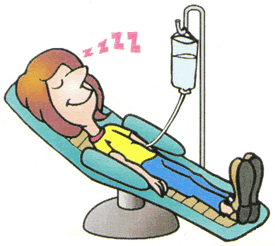FAQs About Crowns and Bridges
What Is A Crown?
A crown, also referred to as a cap, is a covering that is placed over a tooth. Crowns are placed to protect a tooth from failure, such as breaking, or to replace parts of a missing tooth.
What Are Crowns Made Of?
Crowns can be made of many different materials. The most common crown today is a porcelain fused to metal crown. There is a thin metal casting made to fit over your tooth and then porcelain is baked over the metal to make it look like a tooth in color, shape, and form. Crowns can also be made entirely of porcelain with no metal substructure. These all porcelain crowns are mostly reserved for the front of the mouth where aesthetics are the main concern, not strength. Crowns may also be made from gold. Gold is the best material for the back of the mouth, thus the term “gold standard” in dentistry. Your dentist will discuss with you which type of crown is best for you.
Is It Permanent Or Temporary?
Permanent! However, because it is man-made, it does have a lifespan and may need to be replaced several times throughout a lifetime.
How Should I Care For A Crown?
It is important to remember that the crown is just a covering over your natural tooth and regular care of the underlying tooth is necessary for the longevity of the tooth and crown. Since your crown is cemented on, you should take care to avoid the crowned tooth when eating very sticky foods as they may pull the crown off. If this happens it is very simple to fix, just bring the crown to your dentist and it can be recemented on very quickly and easily.
What Is A Bridge?
A bridge is a device that is used to literally bridge the gap between teeth. A bridge is made up of two crowns to attach to teeth on either side of the gap with a false tooth, or set of teeth, in between. It prevents other teeth from moving due to the missing tooth or teeth and restores your smile. Bridges are ideal to replace one or many missing teeth.
Is It Permanent Or Temporary?
Just like a crown, a bridge is permanent with an expected lifespan. It should be expected to be replaced over the course of a lifetime.
How Is A Bridge Attached?
It takes at least 2 visits to fabricate a bridge. During the first visit, your teeth will be prepared for a bridge. A mild anesthetic is applied to your mouth and the dentist will clear an area surrounding the teeth on each side of the space to accommodate for the bridge. An impression will then be taken of your mouth and sent to a lab, where the bridge will be made. Your new, permanent bridge will arrive a few weeks later and will be fitted, checked, and adjusted and, finally, cemented to your teeth.
How Should I Care For A Bridge?
It’s important that the bridge is brushed and flossed just like natural teeth. Extra care needs to be taken to floss underneath any of the replacement teeth using either a floss threader or superfloss.
A Family Dental Care Center: Dr. Seth Rosen
2030 West Main St
Norristown, PA 19403
610-631-3400





















